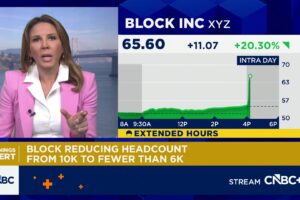<p class="canvas-atom canvas-text Mb(1.0em) Mb(0)–sm Mt(0.8em)–sm" type="text" content="Dan Loeb's Third Point recently revealed that it had accumulated a $1.5 billion stake in Sony (NYSE: SNE), and advocated a spin-off of its semiconductor business to finance a more aggressive expansion of its film and gaming businesses.” data-reactid=”11″>Dan Loeb’s Third Point recently revealed that it had accumulated a $1.5 billion stake in Sony (NYSE: SNE), and advocated a spin-off of its semiconductor business to finance a more aggressive expansion of its film and gaming businesses.
Third Point’s stake in Sony wasn’t surprising, since it has already invested in the Japanese conglomerate before. However, its proposal stunned many investors since it marked a complete reversal from its prior suggestions for Sony.


Image source: Getty Images.
Back in 2013 Third Point accumulated a 7% stake in Sony and pushed the company to spin off its movie business. Sony rejected the idea, but cut costs to improve its profitability. Third Point sold its stake in Sony the following year, and Sony Pictures subsequently struggled with data breaches and box office flops.
Third Point started building a new position in Sony earlier this year. At the time, Reuters reported that the fund wanted Sony to consider selling its film unit and evaluate the importance of its insurance and semiconductor units. However, Third Point’s recent announcement flipped that thesis upside down.
Should Sony sell its semiconductor business?
<p class="canvas-atom canvas-text Mb(1.0em) Mb(0)–sm Mt(0.8em)–sm" type="text" content="Sony's semiconductors unit mainly makes image sensors for cameras and mobile devices. It provides image sensors for about half the smartphone market, and its top customers include Apple, Samsung, and Huawei.” data-reactid=”28″>Sony’s semiconductors unit mainly makes image sensors for cameras and mobile devices. It provides image sensors for about half the smartphone market, and its top customers include Apple, Samsung, and Huawei.
<p class="canvas-atom canvas-text Mb(1.0em) Mb(0)–sm Mt(0.8em)–sm" type="text" content="This unit enables Sony to profit from the growth of the smartphone market without owning a market-leading brand. Its own Xperia brand, which was marginalized by Samsung and other Android device makers, controls less than 1% of the market.” data-reactid=”29″>This unit enables Sony to profit from the growth of the smartphone market without owning a market-leading brand. Its own Xperia brand, which was marginalized by Samsung and other Android device makers, controls less than 1% of the market.
Global smartphone shipments fell 4% in 2018 according to IDC. Smartphone makers sold less units, but they still bought more of Sony’s image sensors for their multi-camera devices.
Higher sales of those mobile sensors offset lower sales of its sensors for traditional cameras, and Sony’s semiconductor revenue grew 3% annually and accounted for 10% of its top line. It expects that figure to rise another 13% this year as it sells more image sensors and 3D sensors for multi-camera phones.


Image source: Sony.
The semiconductor unit’s revenue growth looks healthy, but its operating income, which accounted for 16% of Sony’s total operating profits, fell 12%. That decline was attributed to higher R&D expenses and a tough comparison to its results in 2017, which included one-time gains from divestments and earthquake-related insurance payments.
Should Sony pump more cash into its entertainment units?
<p class="canvas-atom canvas-text Mb(1.0em) Mb(0)–sm Mt(0.8em)–sm" type="text" content="The gaming unit, Sony's core growth engine in recent years, is running out of room to grow as its PS4 hardware sales wane. The unit is offsetting its weaker hardware sales with higher software sales, but that strategy will lose steam as gamers postpone their purchases and wait for the PS5’s arrival next year.” data-reactid=”51″>The gaming unit, Sony’s core growth engine in recent years, is running out of room to grow as its PS4 hardware sales wane. The unit is offsetting its weaker hardware sales with higher software sales, but that strategy will lose steam as gamers postpone their purchases and wait for the PS5’s arrival next year.
<p class="canvas-atom canvas-text Mb(1.0em) Mb(0)–sm Mt(0.8em)–sm" type="text" content="Pumping more cash into the gaming unit's R&D and marketing efforts could give it a much-needed boost as it faces off against Microsoft’s (NASDAQ: MSFT) next-gen Xbox. It could also help the gaming unit land more exclusive titles, expand its PS Plus ecosystem, and strengthen its PS Now cloud gaming platform.” data-reactid=”52″>Pumping more cash into the gaming unit’s R&D and marketing efforts could give it a much-needed boost as it faces off against Microsoft’s (NASDAQ: MSFT) next-gen Xbox. It could also help the gaming unit land more exclusive titles, expand its PS Plus ecosystem, and strengthen its PS Now cloud gaming platform.
<p class="canvas-atom canvas-text Mb(1.0em) Mb(0)–sm Mt(0.8em)–sm" type="text" content="The film unit, however, is a mixed bag. The expansion of its Spider-Man universe with Venom and Spider-Man: Into the Spider-Verse was well-received, but it clearly lacks the theatrical firepower to go toe-to-toe against Disney. Sony’s film revenue fell 2% last year, and recent films like Men in Black International have generated disappointing returns.” data-reactid=”53″>The film unit, however, is a mixed bag. The expansion of its Spider-Man universe with Venom and Spider-Man: Into the Spider-Verse was well-received, but it clearly lacks the theatrical firepower to go toe-to-toe against Disney. Sony’s film revenue fell 2% last year, and recent films like Men in Black International have generated disappointing returns.
Pumping more cash into movies is tremendously risky, and massive budgets don’t guarantee big box office returns. Therefore I’m not convinced that selling the stable semiconductor unit to fund more films is the right move.
Sony probably won’t listen to Loeb
<p class="canvas-atom canvas-text Mb(1.0em) Mb(0)–sm Mt(0.8em)–sm" type="text" content="Loeb's $1.5 billion stake represents just over 2% of Sony's enterprise value. Sony didn't listen to Loeb when he held a 7% stake in 2013, so it's doubtful that they'll listen now. Loeb also sold his original position in 2014, yet the stock more than tripled over the past five years on the strength of its gaming unit. Given that track record, I’m not sure why Sony, investors, or analysts should care about Loeb’s new thesis. ” data-reactid=”56″>Loeb’s $1.5 billion stake represents just over 2% of Sony’s enterprise value. Sony didn’t listen to Loeb when he held a 7% stake in 2013, so it’s doubtful that they’ll listen now. Loeb also sold his original position in 2014, yet the stock more than tripled over the past five years on the strength of its gaming unit. Given that track record, I’m not sure why Sony, investors, or analysts should care about Loeb’s new thesis.
I personally think Sony should keep its semiconductor business. If it wants to sell something, it should consider dumping its money-burning mobile division instead.
<p class="canvas-atom canvas-text Mb(1.0em) Mb(0)–sm Mt(0.8em)–sm" type="text" content=" More From The Motley Fool ” data-reactid=”58″> More From The Motley Fool
<p class="canvas-atom canvas-text Mb(1.0em) Mb(0)–sm Mt(0.8em)–sm" type="text" content="Teresa Kersten, an employee of LinkedIn, a Microsoft subsidiary, is a member of The Motley Fool’s board of directors. Leo Sun owns shares of Apple and Walt Disney. The Motley Fool owns shares of and recommends Apple, Microsoft, and Walt Disney. The Motley Fool has the following options: long January 2020 $150 calls on Apple and short January 2020 $155 calls on Apple. The Motley Fool has a disclosure policy.” data-reactid=”67″>Teresa Kersten, an employee of LinkedIn, a Microsoft subsidiary, is a member of The Motley Fool’s board of directors. Leo Sun owns shares of Apple and Walt Disney. The Motley Fool owns shares of and recommends Apple, Microsoft, and Walt Disney. The Motley Fool has the following options: long January 2020 $150 calls on Apple and short January 2020 $155 calls on Apple. The Motley Fool has a disclosure policy.









